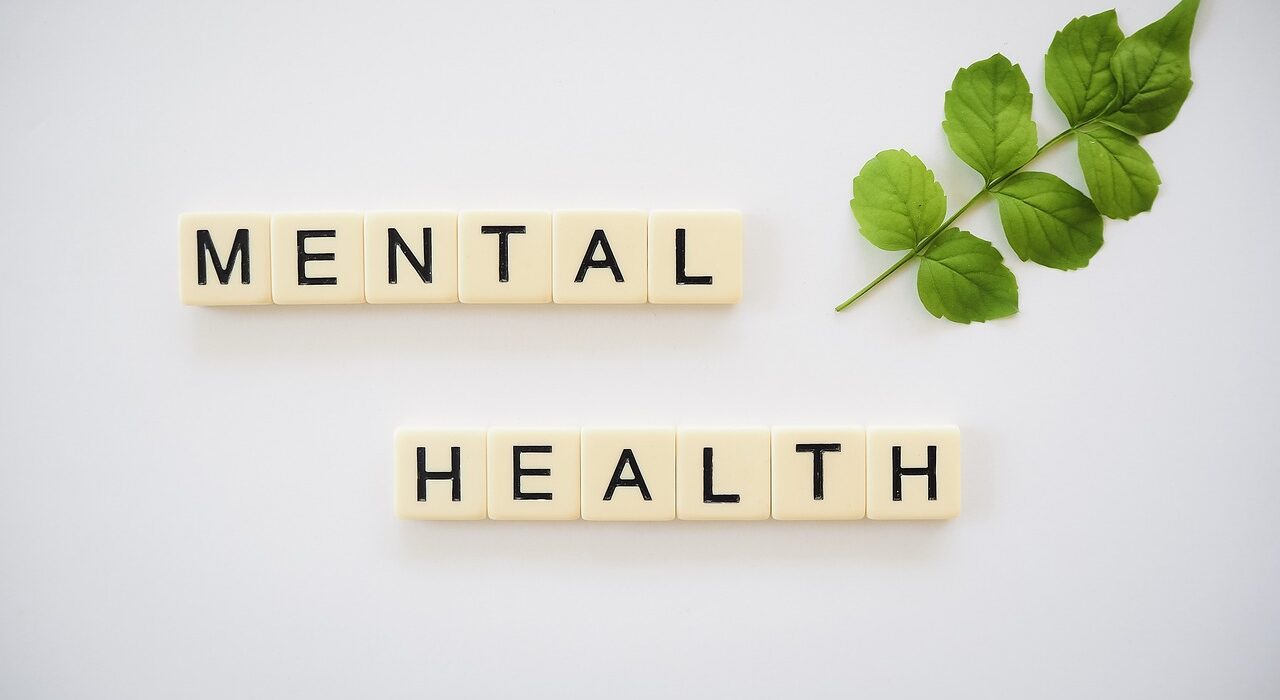Mental Health Awareness: Understanding, Supporting, and Promoting Well-being

Introduction:
Mental health awareness is essential in today’s society. It helps significantly increase the overall well-being of individuals and communities. Understanding mental health is critical since it affects our thoughts, feelings, and behaviors. It impacts our ability to cope with stress, communicate with others, and decide. It is important that Mental Health is frequently disregarded, and many people suffer alone owing to a lack of awareness and understanding.
Mental health difficulties are prevalent all around the world. The World Health Organization (WHO) estimates that one in every four persons may experience a mental or neurological disease in their lives. This shocking figure shows the widespread prevalence of mental health issues. Depression, anxiety, and bipolar disorder are becoming more widespread, impacting millions of people of all ages and backgrounds. The COVID-19 epidemic caused mental health difficulties, resulting in a rise in cases due to increased stress, isolation, and uncertainty.
Purpose:
The goal of this post is to educate readers on mental health, de-stigmatize mental health issues, and provide resources for individuals seeking help. By promoting awareness, we can create a more informed and caring society. Education is essential for understanding mental health concerns and their impact on individuals and society.
Reduced stigma is critical for promoting open conversations about mental health, allowing people to seek treatment without fear of being judged. Providing resources allows people to get the help they need to manage their mental health properly. This article seeks to help achieve these goals by providing excellent insights and practical information about mental health awareness.
Understanding the Mental Health
Mental health covers our emotional, psychological, and social well-being. It impacts how we think, feel, and conduct, impacting our capacity to cope with stress, communicate with people, and decide. Good mental health is critical to overall well-being and quality of life.
It enables people to reach their full potential, cope with everyday challenges, work efficiently, and contribute to their communities. In contrast, poor mental health can cause severe distress and disability, affecting many aspects of a person’s life, from relationships and jobs to physical health.
Common Mental Health Disorders:
Mental health illnesses refer to a broad spectrum of conditions that influence emotion, thought, and behavior. Some of the most are:
- Depression: A mood condition defined by regular feelings of sadness, hopelessness, and a loss of interest or pleasure in activities. It can cause a variety of mental and physical problems, reducing a person’s capacity to perform at work and at home.
Anxiety Disorders: These include generalized anxiety disorder, panic disorder, and social anxiety disorder. Excessive fear or worry, which can interfere with daily activities, characterizes anxiety disorders.
Bipolar Disorder: A mental health illness characterized by strong mood swings, such as mania or hypomania, and depression. These mood swings can disrupt sleep, energy, behavior, and cognitive function.
PTSD: Post-Traumatic Stress Disorder: Post-Traumatic Stress disorder is a condition that may arise following contact with a traumatic incident, such as an assault, natural disaster, or war. Flashbacks, nightmares, excruciating anxiety, and uncontrollably vivid thoughts about the incident are among the symptoms.
Symptoms and Signs:
Early intervention and successful treatment depend on the ability to identify the telltale signs and symptoms of mental health problems. Typical symptoms and signs include:
- Emotional Changes: Long periods of sadness, restlessness, or mood swings. Feelings of intense regret, worthlessness, or despair.
- Behavioral Changes: withdrawal from social interactions and activities, noticeable changes in eating or sleeping patterns, and fatigue or low energy.
- The mental symptoms: difficulty concentrating, making decisions, or remembering details. Struggling to focus or experiencing disturbing thoughts.
- Physical Symptoms: unexplained aches and pains, frequent headaches, digestive issues, or changes in weight or appetite.
- Cognitive Symptoms: Trouble focusing, making decisions, or remembering details. Difficulty concentrating or experiencing intrusive thoughts.
- Physical Symptoms: unexplained aches and pains, frequent headaches, digestive issues, or changes in appetite or weight.
- Psychological Symptoms: Delusions, hallucinations, excessive worry, or fears.
Recognizing these indicators and being aware of the effects that mental health issues can have on both the affected person and their loved ones are essential components of understanding mental health. By raising awareness, we may encourage prompt diagnosis, efficient care, and a comforting environment for individuals impacted.
The stigma of mental health:
Historical Perspective:
Mental health stigma stems from cultural, religious, and social misconceptions. In the past, mental health problems were frequently linked to spirits, which led to procedures such as supernatural events and isolation. During the Middle Ages, people with mental diseases were usually seen as possessed or morally weak, and they faced harsh punishments or imprisonment in terrible asylums.
The medical concept of mental health emerged in the nineteenth and early twentieth centuries, but stigma persisted since mental disorders remained poorly understood and much feared. Although improvements in mental health and psychology occurred, historical neglect and humiliation of people with mental illnesses laid the groundwork for current stigma.
Current Challenges:
Despite increased understanding and awareness, mental health stigma still exists. Misconceptions concerning mental diseases persist, with many people seeing these conditions as signs of psychological weakness or character faults.
Misconceptions about mental health include a belief that they are not actual illnesses, that they can be readily controlled with willpower, or that people with mental health concerns are dangerous or unpredictable. Media portrayals frequently reinforce these prejudices, exacerbating misunderstanding and fear. Cultural and societal standards can prevent open conversations regarding mental health, promoting silence and ignorance.
Impact of stigma:
The stigma surrounding mental health has profound and far-reaching consequences. It can prevent individuals from seeking help because of fear of judgment, discrimination, or social exclusion. Many people suffering from mental health issues choose to remain silent, leading to worsening symptoms and diminished quality of life.
Stigma can also affect the availability and quality of care, as individuals may avoid professional help or not receive adequate support from healthcare providers. In the workplace, stigma can cause discrimination, affecting employment opportunities and job security. Social relationships can also suffer, as friends and family may struggle to understand or support those with mental health conditions.
Ultimately, stigma creates barriers to recovery, exacerbating the challenges faced by individuals with mental health issues and perpetuating a cycle of misunderstanding and neglect. By addressing and challenging these stigmas, society can create a more inclusive and supportive environment that encourages open dialogue, promotes understanding, and facilitates access to necessary care and resources.
The Importance of Mental Health Awareness:
Education and Understanding:
Increasing public awareness of mental health issues and encouraging a deeper understanding of these difficulties are two important goals of mental health awareness. People can learn to identify the warning signs and symptoms of mental health issues, understand the causes of mental disease, and acknowledge the value of mental health by raising their level of awareness.
Education contributes to the breaking of misconceptions and prejudices, creating a more informed and understanding viewpoint toward individuals dealing with mental health issues. People who are educated are more likely to back mental health programs and push for the adjustments that their communities need to make.
Early Intervention and Prevention:
The best results for people with mental health disorders can be achieved through early detection and treatment, which depends mainly on awareness. Knowing the early warning signals of mental health problems allows for proper treatment, preventing symptoms from increasing and reducing the chance of serious side effects. Counseling, therapy, medicine, and lifestyle modifications are all examples of preventative measures that can help improve the condition.
Mental health awareness encourages preventative strategies such as stress management skills, regular physical activity, and healthy relationships, which can minimize the likelihood of developing mental health issues.
Supporting Others:
Be aware of mental health concerns allows people to support friends, family, and colleagues who are struggling. Awareness promotes empathy and compassion, allowing others to provide real help and lessening feelings of isolation for those affected. Knowing how to approach mental health talks, identify warning signals, and provide proper resources can make a big difference in someone’s recovery. A supportive network can increase a person’s sense of belonging and provide the motivation to seek professional care.
Increasing Mental Health Awareness:
Community Programs and Initiatives:
Effective mental health awareness initiatives and campaigns promote community education and well-being. Mental Health First Aid programs, community workshops, and school-based treatments all offer essential knowledge and services to a wide range of people.
These activities frequently include training sessions, support groups, and public awareness campaigns aimed at lowering stigma and improving access to mental health care. By including community people. These programs promote open communication and active mental health care.
Use of Media and Social Platforms:
Media and social platforms can effectively raise awareness and provide information on mental health issues. Television shows, movies, podcasts, and social media campaigns can all reach a large audience, boosting awareness and spreading good messages about mental health. Influencers, celebrities, and advocates can use their platforms to share personal stories, educate others, and promote mental health resources. Social media hashtags, online challenges, and virtual events can all help connect and activate communities, encouraging them to join in mental health awareness campaigns.
Advocacy and Policy Change:
Advocacy is key to driving policy changes that support mental health resources and services. Advocates fight to change laws, gain money for mental health programs, and ensure that mental health is a priority in public policy. Effective advocacy is working with lawmakers, healthcare professionals, and community organizations to overcome systemic barriers and increase access to mental health care.
Policy reforms can cause improved funding for mental health services, comprehensive mental health education in schools, and anti-discrimination laws that protect people with mental illnesses. By fighting for these reforms, we can build a more equal and supportive society for everyone.
Practical Ways to Support Mental Health Awareness:
Education and Training:
One of the most effective approaches to promoting mental health awareness is through education and training. Encourage readers to learn more about mental health through reading books, taking online courses, and attending workshops or seminars. Understanding the basic concepts of mental health, common disorders, and treatment choices helps to demystify these conditions and reduce worry.
Sharing this knowledge with friends, family, and colleagues can help to build a better informed community. Mental Health First Aid classes, for example, teach people how to recognize, understand, and respond to indicators of mental health difficulties, giving them the ability to provide early help and refer people to expert care.
Open Conversations:
Promoting open talks about mental health is key to decreasing stigma. Encourage readers to share their mental health stories and listen emotionally to others. Changing these interactions might lead to a more welcoming and helpful workplace. Tips for starting these conversations include finding a comfortable place, being honest about one’s emotions, and offering support rather than judgment. Public celebrities and social media influencers can also use their platforms to share personal tales, additionally breaking down barriers and encouraging others to open out about their mental health.
Supporting Mental Health Organizations:
Supporting mental health groups can have a major impact. Readers can help local mental health charities by offering their time or skills, taking part in events to raise money, or making donations to support their programs and services.
Taking part in awareness activities such as mental health walks, runs, or virtual campaigns may contribute to raising cash and draw attention to mental health issues. Highlighting specific groups, such as the National Alliance on Mental Illness (NAMI) or Mental Health America, can give readers concrete ways to help with mental health advocacy and help.
Self-Care Practices:
Promoting self-care is essential for preserving mental wellness. Share practical self-care recommendations that readers can implement into their regular routines:
- Mindfulness and Meditation: Encourage readers to use mindfulness and meditation to reduce stress and improve emotional regulation.
- Regular Exercise: Regular exercise is good for your mental health, as it helps to reduce anxiety and sadness while also improving your mood.
- Healthy Eating: A well-balanced diet can improve mental health by delivering the nutrients required for brain function.
- Adequate Sleep: Emphasize the need to have enough good quality sleep to support overall health.
- Connecting with others: Social connections are critical to mental wellness. Encourage readers to connect with friends and family, join clubs or groups, and take part in community events.
- Setting Boundaries: Teach readers how to set boundaries to manage stress and avoid burnout, whether in their personal or professional lives.
- Hobbies and Interests: Motivate readers to pursue hobbies or activities that they enjoy, since they can bring a sense of accomplishment and relaxation.
Individuals who embrace these self-care habits can improve their mental health and be more suited to help others. Together, these practical steps can have a knock-on impact, promoting a more compassionate and aware culture that promotes mental health.
Resources for Mental Health Support:
Helplines and Support Services:
- National Suicide Prevention Lifeline (1-800-273-8255): Provides 24/7 free and confidential support for people in distress, prevention, and crisis resources.
- Crisis Text Line (Text HOME to 741741): Offers free, 24/7 support via text message.
- SAMHSA’s National Helpline (1-800-662-HELP): A confidential, free, 24/7, 365-day-a-year information service for individuals and family members facing mental health and/or substance use disorders.
- The Trevor Project (1-866-488-7386): Provides crisis intervention and suicide prevention services to LGBTQ+ youth.
- Nami Helpline (1-800-950-NAMI): offers free, confidential support and information about mental health issues.
Online Resources and Apps:
- Better Help: An online platform offering professional counseling services via video, phone, and text.
- Headspace: A mindfulness and meditation app designed to reduce stress and improve mental well-being.
- Calm: An app focused on meditation, sleep, and relaxation to enhance mental health.
- Meneptah: A mental health app that tracks and assesses your emotional well-being.
- Mind Shift CBT: An app based on cognitive-behavioral therapy (CBT) to help manage anxiety.
Books and Educational Materials:
- “The Body Keeps the Score” by Bessel van der Kolk explores the impact of trauma on the body and mind.
- “An Unquiet Mind” by Kay Redfield Jamison: A memoir of living with bipolar disorder.
- “Lost Connections” by Johann Hari examines the causes of depression and offers new ways of thinking about mental health.
- “Feeling Good” by David D. Burns: A Guide to Cognitive-Behavioral Therapy for Depression.
- “Mindfulness for Beginners” by Jon Kabat-Zinn: An introduction to mindfulness practices and their benefits.
Conclusion:
Mental health awareness is critical for increasing understanding, decreasing stigma, and boosting overall well-being. Throughout this essay, we have discussed the significance of mental health awareness, the impact of stigma, and the advantages of education and early intervention. We’ve also talked about practical measures to raise mental health awareness, such as education, open conversations, supporting organizations, and practicing Self-Care.
By increasing awareness and giving information, we can build a more informed and caring society. Everyone has a responsibility to play in raising mental health awareness, particularly through education, support, or campaigns. Taking action can have a big impact on the lives of those dealing with mental health problems.
Call to Action:
In order to raise awareness regarding mental health, I kindly ask you to share this article. Motivate people to take part in community-based mental health support programs and awareness campaigns. When we work together, we can create a culture that supports, understands, and accepts mental health.










